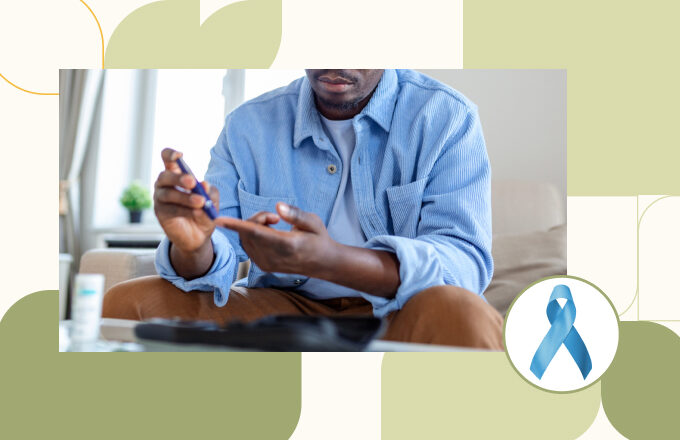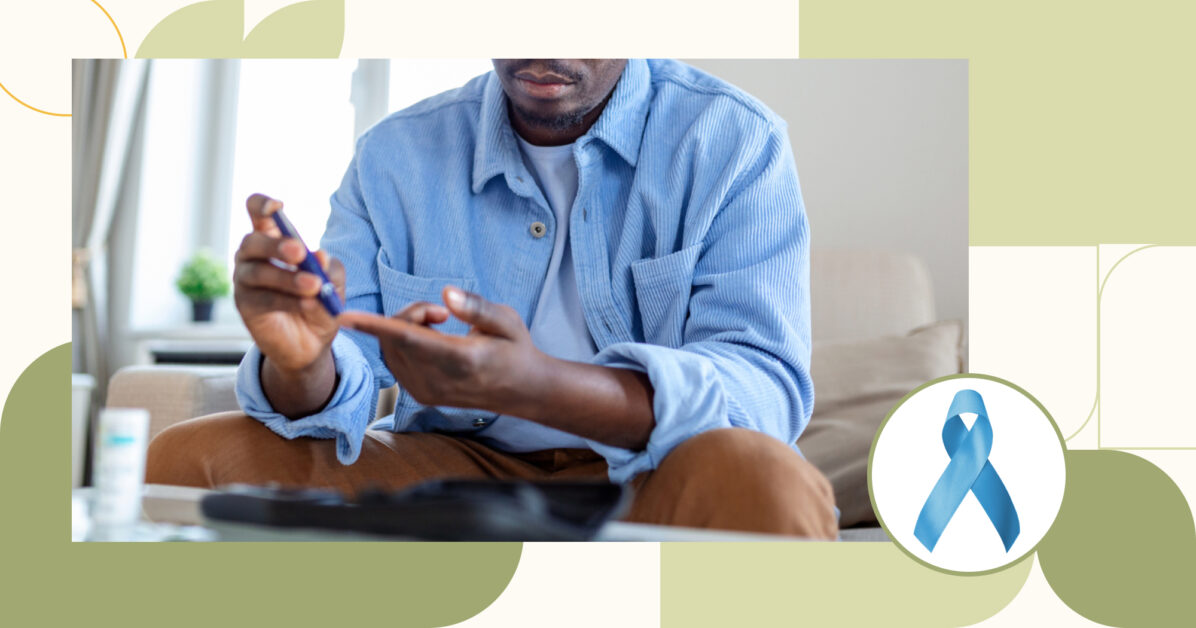
Combating Diabetes for Health Equity

November is American Diabetes Month, a time to reflect on the impact of diabetes and unite efforts toward managing, preventing, and ultimately ending this disease. Diabetes impacts over 37 million people across the United States, with underserved communities, especially African American populations, disproportionately affected.
In areas where systemic barriers often stand between residents and the resources they need for health, community health centers, like Marin City Health and Wellness Center (MCHWC), are committed to addressing these disparities.
Let’s explore the specific challenges our community faces in combating diabetes and what MCHWC is doing to support prevention, education, and effective management as we work together for a healthier Marin City.
American Diabetes Month: Why It Matters
American Diabetes Month serves as a national call to action. The month is organized by the American Diabetes Association (ADA) to spread awareness about the risks, symptoms, and management of diabetes. During this month, health organizations nationwide emphasize diabetes prevention and self-management and the role of community and education in addressing diabetes on a broader scale. For community healthcare providers, November is an opportunity to go beyond general awareness and focus on meaningful action to break down the barriers preventing the disadvantaged from achieving optimal health.
The theme for 2024’s American Diabetes Month is “Together, We Stand Against Diabetes.” This theme underscores the need for a united approach, recognizing that combating diabetes requires a comprehensive, community-focused approach that considers equity and accessibility, and that access to resources, food security, healthcare, and education are not privileges but fundamental rights.
Understanding the Impact of Diabetes in California and Marin City
California is home to nearly 4 million adults with diabetes, and according to the California Department of Public Health, African American adults face nearly double the diabetes rates of their white counterparts. This pattern holds true in Marin City, where barriers like limited healthcare access, food insecurity, and a lack of educational resources create obstacles to effective diabetes management and prevention. MCHWC is here to break these barriers, one by one, in ways that empower individuals and families to thrive.
Understanding Diabetes: Type 1 vs. Type 2
Before diving deeper into the specific barriers our community faces, it’s helpful to understand the two types of diabetes:
Type 1 Diabetes is an autoimmune condition that occurs when the immune system mistakenly attacks insulin-producing cells in the pancreas, leading to an insulin deficiency. Those with Type 1 diabetes require daily insulin therapy to manage their blood sugar levels. While it can develop at any age, it is most commonly diagnosed in children and young adults (which is why it was once referred to as Juvenile Diabetes) and, unlike Type 2 diabetes, is not preventable and does not have a prediabetes stage.
Type 1 accounts for about 5–10% of all diabetes cases.
Type 2 Diabetes is far more common, making up around 90–95% of diabetes cases. It’s often linked to lifestyle factors and tends to develop gradually over time as the body becomes resistant to insulin or fails to produce enough insulin. This type is largely preventable and manageable with lifestyle changes, but for many in underserved communities, the resources to make these changes are often out of reach.
Unlike Type 1 Diabetes, Type 2 has a prediabetes stage. Prediabetes occurs when blood glucose levels are higher than normal but not yet high enough to be classified as Type 2 Diabetes. It is a warning sign that a person is at risk of developing Type 2 Diabetes.
Type 2 Diabetes: A Cascade of Complications
Left unmanaged, Type 2 Diabetes can lead to a range of serious complications, including heart disease and stroke, as well as kidney disease and vision problems. Poor blood flow increases risks for foot infections and, in severe cases, amputation. Nerve damage (neuropathy) can cause numbness, pain, and tingling. Managing blood sugar through diet, exercise, and regular medical check-ups is essential to lowering the risk of these health complications.
Addressing Key Challenges in Our Community
MCHWC focuses on four key challenges in our work toward health equity in Marin City. Our approach is rooted in understanding the social determinants of health—those factors beyond genetics that influence health outcomes. These determinants include economic stability, access to quality healthcare, and safe living environments, and they play a large role in the disparity in diabetes rates for African American communities.
- Limited Access to Quality Healthcare
Without regular screenings, diabetes often goes undiagnosed or unmanaged, leading to dangerous complications. Our staff works to ensure patients receive timely care and know that they have a support network behind them. - Socioeconomic Challenges
Economic instability, job insecurity, and income inequality make it difficult for many in our community to afford the medications, monitoring supplies, and dietary modifications essential for managing diabetes. The ADA reports that diabetes-related healthcare costs are often twice as high for people with diabetes, adding to the burden. MCHWC partners with local organizations and social programs to bridge these gaps. - Food Insecurity and Poor Nutrition
African American communities are more likely to live in “food deserts,” areas where access to fresh, affordable produce is limited or nonexistent. This lack of access to nutritious food not only contributes to diabetes risk but also makes diabetes management harder for those already diagnosed. MCHWC actively works to provide resources that support healthier dietary choices that align with patients’ budgets and cultural preferences. From nutritional guidance to providing resources like local food banks, we ensure that individuals in our community have the information and access they need to make choices that support their health. - Lack of Awareness and Education
Understanding diabetes risks, symptoms, and management options can be challenging. MCHWC offers diabetes self-management that empower patients with the knowledge and tools they need. Our health educators offer information on healthy eating and are trained to meet people where they are, both physically and culturally. Our goal is to ensure everyone in our community feels capable of taking control of their health.
How You Can Get Involved
American Diabetes Month is an opportunity for everyone to take part in the fight against diabetes. Here are some ways you can support MCHWC’s mission and help make a difference in Marin City:
- Support local health programs: Contributing to MCHWC’s services ensures that those in need have access to healthcare, screenings, and nutritional counseling.
- Spread awareness: Talking about diabetes and sharing information with family and friends can encourage others to get screened or adopt healthier habits.
- Volunteer your time: If you have a background in health, wellness, or community work, consider volunteering with local health centers or programs. Your time can help expand the reach of diabetes education and support in Marin City.
Managing Diabetes: Take the First Step
Managing diabetes can feel overwhelming, but no one has to face it alone. At Marin City Health and Wellness Center, our team is here to support every step of the journey. We provide a wide range of resources, from nutrition counseling and wellness coaching to free screenings and diabetes education programs. This American Diabetes Month, we encourage you to reach out, whether for yourself or a loved one. To schedule a free one-on-one session for nutrition, exercise, and wellness counseling, call us at (415) 339-8813 or email [email protected].
Looking Ahead: Working Toward a Healthier Future
At MCHWC, we believe that equitable healthcare is essential to a just society. By addressing the social determinants that impact diabetes rates, from food insecurity to healthcare access, we are working to create a Marin City where everyone has the resources to live a healthy life. This American Diabetes Month, let’s stand together to raise awareness, drive change, and make a difference in our community’s health. Together, we can work toward a future free from the disproportionate burden of diabetes in African American communities, ensuring that all have the opportunity to live well.


